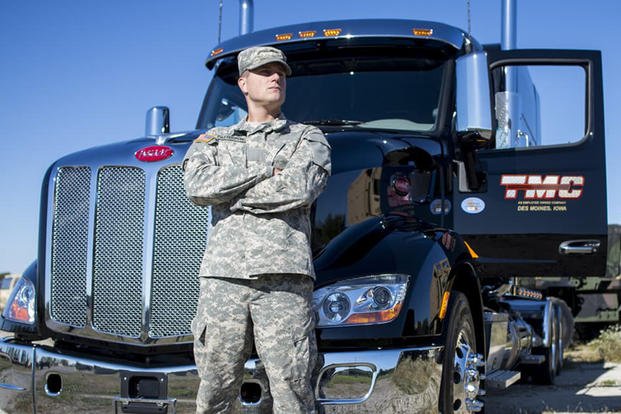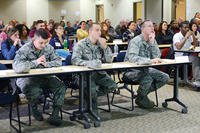You've heard it time and again: "You need a college education if you want to make good money."
But that isn't always the case.
According to Monster.com, the average salary for an accountant with a college degree is $50,000. But, according to that same website, a licensed electrician also gets an average starting wage of $50,000. Of course, members of those professions can get wildly lower or higher salaries depending on location. If they get certifications or join a union the amounts can be much more, but you get the idea.
In fact, Walmart is paying truck drivers up to $100,000 annually.
So, what do you do after you get out of the military and look to enter the job market? The prevailing opinion has long been that a college degree is the best path to long-term financial success. But not always.
Colleges have changed over the years. They used to be bastions of higher learning where you went to get an education, and a good job would follow. Now, colleges advertise themselves as nothing more than paths to a good job. Why not use the skills you learned in the military as your path to a good job?
Thankfully, there are several ways you can build on the skills you gained in the service to guarantee civilian success.
The GI Bill
Everybody knows you can use your GI Bill benefits for college. Did you know you can also use them for Vocational & Technical Training, Apprenticeship & On-the-Job Training and Licensing & Certification Testing and reimbursement?
If you want to be anything from a computer network technician to a union steamfitter or an emergency medical technician (EMT), you can actually use your GI Bill to get the training needed to move right into one of those jobs.
In fact, if you use the apprenticeship program with the GI Bill, you will get a salary and GI Bill payments at the same time!
Credentialing
Credentials are basically a certification that you possess a specific skill set, or are considered qualified to do a certain job.
For example, a welder can show his welding certifications to an employer to document that he has specific skills and knowledge, such as high pressure or underwater welding skills. A mechanic may be certified as an expert with diesel engines.
All branches of the service offer credentialing services online. These programs allow you to demonstrate your knowledge of a specific skill or trade and get a certificate from professional organizations or government agencies that you can use to convince a prospective employer you have the skills necessary to handle any job.
These credentialing services are free and can be done while you are on active duty. If you are a veteran, you can print out a copy of your basic credential information using your Joint Services Transcript.
Credit for Skills Learned in the Military
The United Services Military Apprenticeship Program (USMAP) gives active-duty Coast Guard, Marine Corps and Navy members the opportunity to improve their job skills and complete their civilian apprenticeship requirements at no cost while still in the service.
When you complete the course, you get a Certificate of Completion issued by the U.S. Department of Labor, which you can use when applying for jobs.
Other Programs
There are many more programs available for job seekers that can be used either while on active duty or after you leave. For example, many states offer a skills test waiver for a Commercial Driver's License (CDL) if you have a military CDL; others offer free professional certifications and skills training. Check your local state for details.
Find the Right Veteran Job
Whether you want to polish your resume, find veteran job fairs in your area or connect with employers looking to hire veterans, Military.com can help. Sign up for a free Military.com membership to have job postings, guides and advice, and more delivered directly to your inbox.















